Sunflower
All Sunflower Content
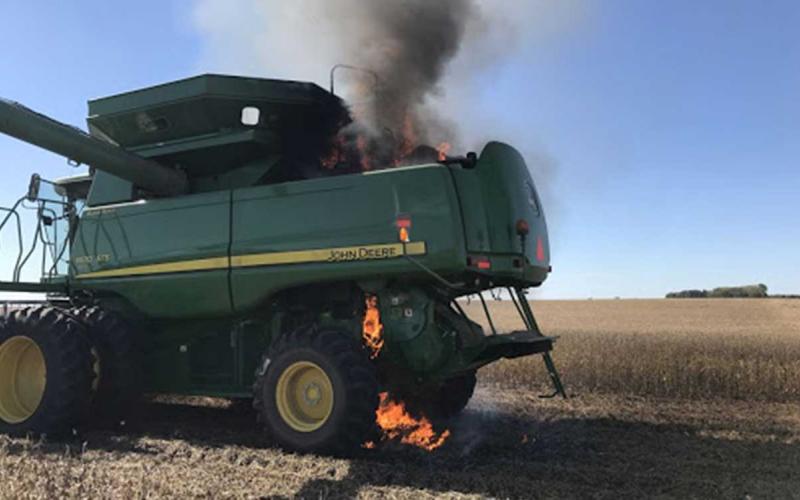
Avoiding Field Fires During Fall Harvest
With dry and drought conditions in the late summer and fall, crops dry down rapidly and harvest starts early. The climate outlook may be favorable for an uninterrupted run at harvest. However, the risk of fires during harvest is always a concern for farmers.
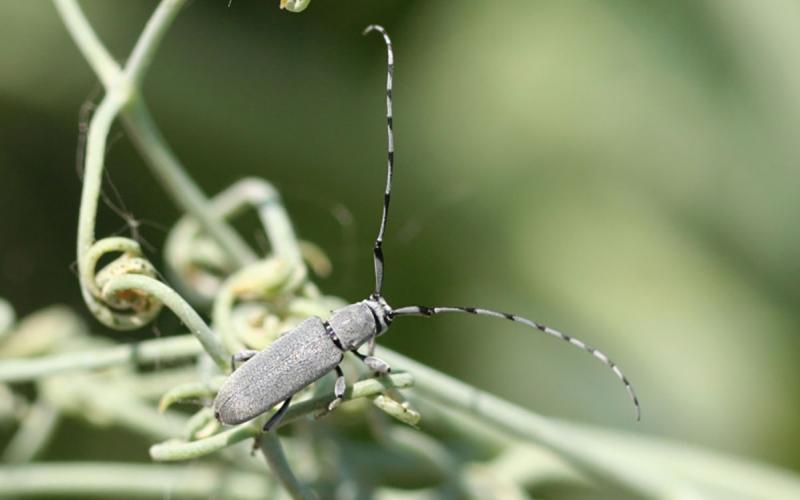
Dectes Stem Borer in Soybean
Although Dectes stem borers are more of an issue in South Dakota sunflower, they can also infest soybean. Thier larvae may cause soybean yield losses due to their feeding activity in the pith of the stem and also due to late-season lodging.
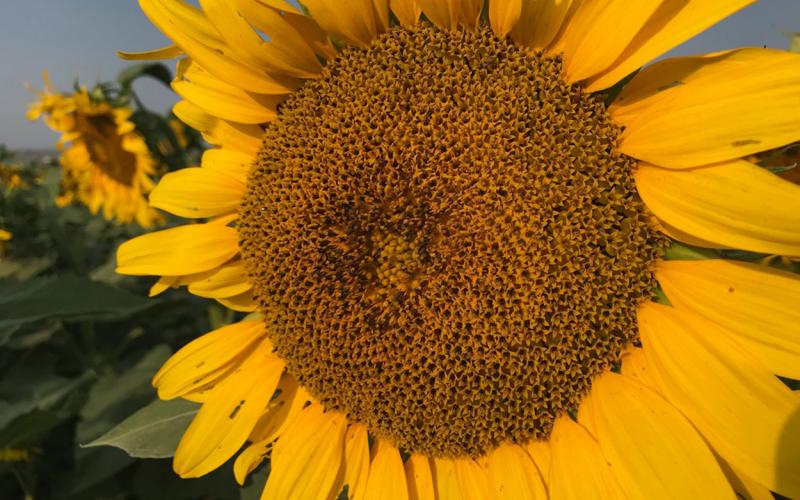
National Sunflower Association 2021 Sunflower Survey
Volunteers from private industry and SDSU Extension will soon be visiting South Dakota sunflower fields to participate in the biennial sunflower survey. The survey aims to evaluate yields and production practices along with pest pressure from weeds, insects, diseases and birds.
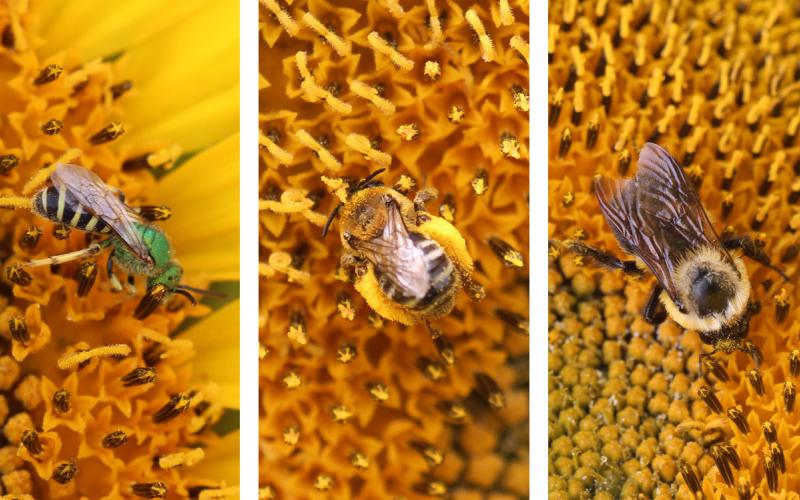
Pollinators Are Active in Sunflower
While scouting sunflowers, it’s hard to not notice the constant buzzing present in the field, which is produced by numerous species of bees. While sunflower varieties grown in the United States were bred for self-fertility, there is evidence that both honey bees and native wild bees can improve pollination.
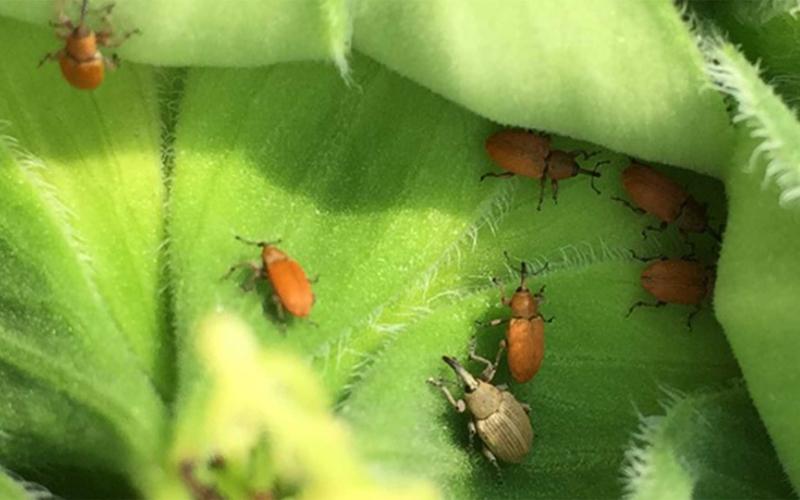
Red and Gray Sunflower Seed Weevil Identification
While scouting sunflower, it’s not uncommon to observe both red and gray sunflower seed weevils on the same developing head. Differentiating these two species isn’t difficult, as there are obvious size and coloration differences.
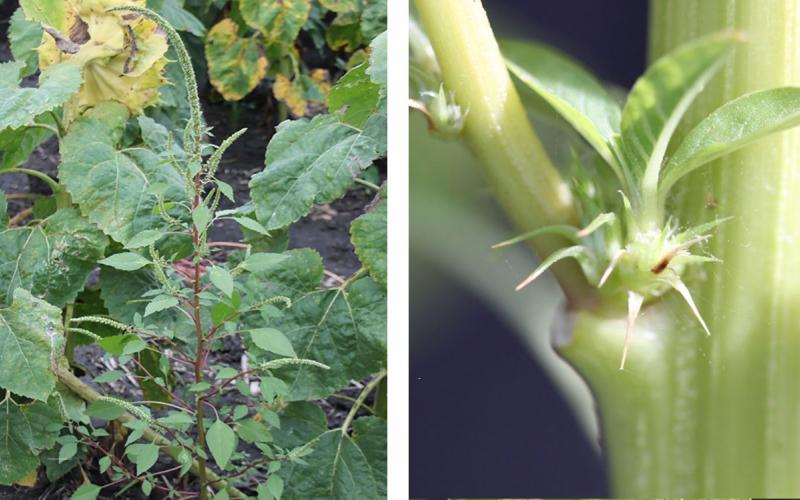
Palmer Amaranth: Now Is the Time to Scout
South Dakota State University (SDSU) Extension encourages farmers, ranchers and other landowners to start scouting for Palmer amaranth, a weed that has been rapidly spreading north into the United States and is likely to be glyphosate-resistant.
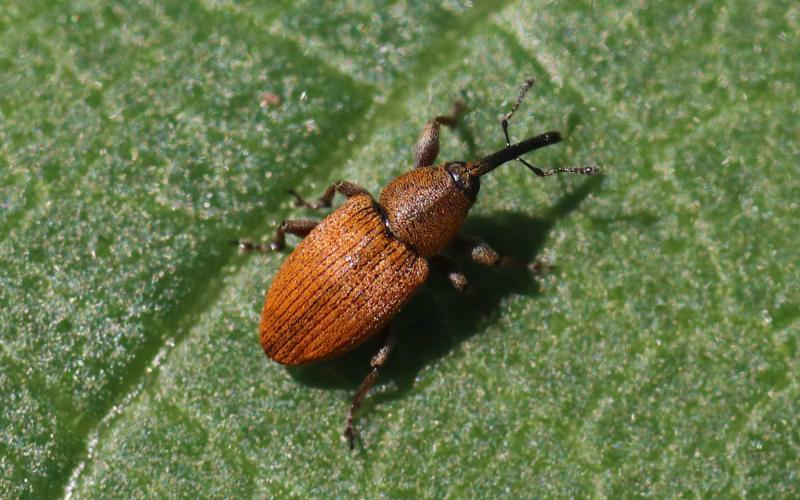
Red Sunflower Seed Weevils Are Active
Red sunflower seed weevils are active in South Dakota sunflowers. We noticed that many fields at R5 stages are already being sprayed, but scouting should still continue in those fields after application, and it should begin for fields that will reach the R5 stage within the next week.
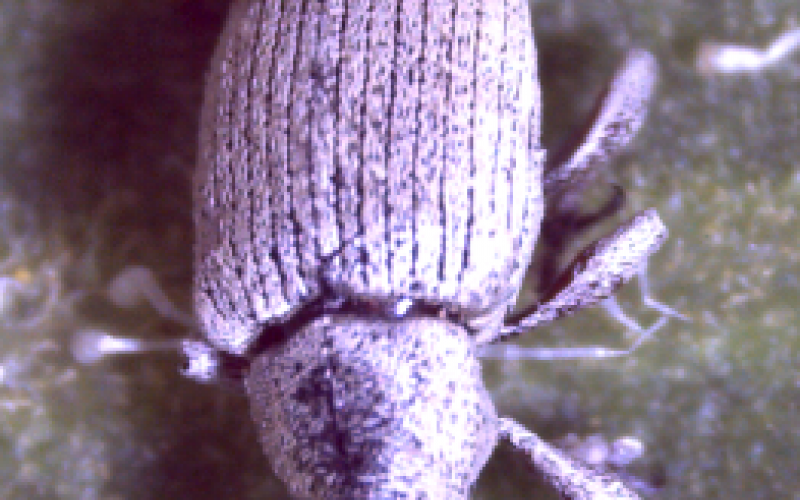
Gray Sunflower Seed Weevils
Gray sunflower seed weevils have been spotted in sunflower fields this week. Although they are a non-economic pest there are times when they can have population outbreaks and reduce sunflower yields.
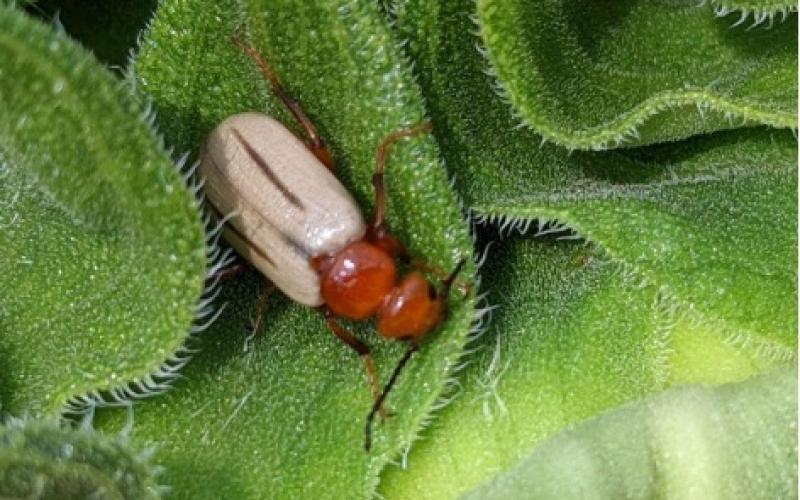
Zonitis Bilineata on Sunflowers
While scouting sunflower last week we noticed beetles that were present throughout the field on the developing buds. These beetles weren’t feeding on the buds or the bracts that they were often on. So, what were they doing on the sunflowers?
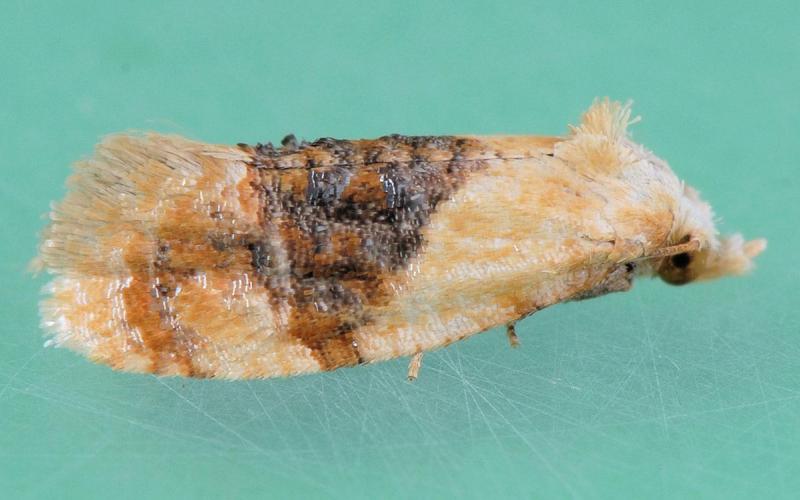
It’s Time To Start Scouting For Banded Sunflower Moths
Sunflowers throughout South Dakota are quickly approaching the R3 growth stage, which means it’s time to start scouting for banded sunflower moths. Banded sunflower moths are capable of reducing yields due to their caterpillars feeding on the bracts, florets and seeds.